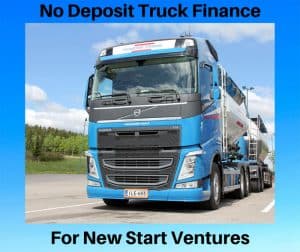People should carefully consider the pros and cons of either working for a boss or to start their own business. This article will run through what should be considered before making a decision either way and what steps need to be taken before starting a new business.
Pros of Working for a Boss
Stable income
No responsibility of having to repair or maintain trucks or equipment
Annual leave, employer paid superannuation, holiday pay, sick pay and overtime
No stress of having to meet the day to day expenses incurred when running a business
Cons of Working for a Boss
Likely to earn less money than if self employed
No say in the direction of the business
The employee builds up equity of the business for the owner (often for no return)
Can lose paid employment due to a breakdown in personal interactions with the owner
Could be dropped to part-time or casual in the event of a slowdown for the business
Have to maintain good relationships with other staff and customers
Obligated to work a set period of time such as 9:00am to 5:00 pm
Pros of Being Self Employed
Increased ability to generate a higher income compared to working for someone else
You are in control of the direction and growth of the business
The employees help the owner increase their brand and equity in the business
As the owner, you have final say without being told what to do by others
Flexible hours (i.e. can decided when and how long you work)
Cons of Being Self Employed
Stress of running a business during both good economic times and bad economic times
Having to maintain and repair equipment (can be costly in the transport industry)
Requirements to borrow money to purchase capital equipment or grow the business
Director to sign personal guarantees to support loans, hence tying in personal assets
Meeting statutory obligations on behalf of employees (super, tax and WorkCover)
Risk of employees recklessly driving trucks or operating machinery
As can be seen above, many different factors need to be considered before taking the step away from paid employment into your own business.
If it is decided that you do wish to take the plunge and become self-employed, below is list steps that will need be considered before starting your transport business.
Step One
Obtaining a suitable work source letter or work contract
This step is a very vital step towards a successful new start business. Undertaking due diligence with respect to obtaining work for a truck ensures that you will have some form of guaranteed work. Work source letter (whilst not legally binding) states that a particular contractor will be used as a preferred contractor earning approx. x per month. A work contract provides a bit more stability, as it will state a wide variety of terms and conditions binding both the contractor and the work provider.
 Step Two
Step Two
What Type of Legal Trading Entity?
Sole trader – individual trading person
Partnership – two or more individual trading persons
Company – one or more company directors
Trust – Involves a trustee, a trading trust and beneficiaries of the trust
Depending on which company will be providing you the work, it might be a requirement for their contractors to hold a company ABN. It is very much recommended that anyone starting their own business for the first time, seek the advice of a qualified accountant.
Step Three
What Equipment is Required to Complete the Work Contract
Consideration needs to be given towards purchasing new equipment or used equipment. Whilst purchasing second-hand equipment keeps initial costs down, aged or used equipment may incur a large amount of maintenance costs going forward. It is also harder for new start businesses to purchase older, used trucks or equipment.
Step Four
Find a Finance Company that Specialises in Truck Finance
It is very difficult for new start business to obtain finance for trucks and or equipment. In order to make sure you successfully source suitable truck finance – you need to find a finance company that specialises in Truck and Heavy Equipment Finance.
All mainstream financiers (such as Westpac, CBA, ANZ and NAB) have very strict lending restrictions on new start ventures. These lenders would require the below before looking at such a deal;
- Solid work contract
- Accountant prepared cashflow projection
- 20% upfront deposit
- Equipment being purchased is no older than 5 years old at time of purchase
- Confirmation that funds are available to cover running costs
- Client to be asset backed (i.e. equity in property and other assets)
On the other hand, specialist truck finance companies like Heavy Vehicle Finance, only require the following;
- Work source letter indicating our client will be a preferred contractor
- Confirmation our client has funds to cover running cost
- We offer No Deposit Truck Finance for new start businesses
It is more often the case, that those looking to start their own transport business, do not have funds for a deposit but do have funds in the bank to cover running costs. If these people were to go direct to their bank – they would not get a start in business. But if they were come to us, we can give them a start in the transport industry as an owner driver.
Step Five
Find a Company That Specialises in Truck Insurance
Similar to finding suitable finance options, you will need to find a company that specialises in truck insurance. Many insurance companies that can offer cover on your motor vehicle, would not be able to offer truck and transit insurance. Companies that may be able to assist could be National Truck Insurance (NTI).
Step Six
At this stage, you should be up and running operating your own truck as an owner driver. In order to keep things on track financially, it is strongly suggested to align yourself with a good accountant and an on the ball bookkeeper. There are various accounting software packages that can be used in order to track ingoings and outgoings of the business. Such examples of this are Xero, Quick Books and MYOB. Using these programmes will help you track the progress of your business and assist your accountant with preparation of end of year financials.
Step Seven
To Put on a Driver and Purchase a Second Truck
As the business grows and more work becomes available, as a business owner you need to decide whether or not to obtain additional equipment and employ your own staff or to pass this work onto a subcontractor. If you were to put on staff, you will have all of the responsibilities that comes with employing staff and purchasing additional equipment. If you pass on the work to a subcontractor, you may run the risk of loosing the work to this subcontractor.
Many decisions need to be considered before making the step into a business of your own. Whilst it has the potential to be both financially and personally rewarding, any prospective person to a new start business needs to be mindful of the pressures and responsibilities that come with it.
To keep up to date with truck finance news offered by Heavy Vehicle Finance, please like our Facebook Page.
If you do decide to take the plunge and become self-employed, please give one of our Finance Consultants a call on 1300 788 740 to discuss questions relating to No Deposit Truck Finance.




 Step Two
Step Two




